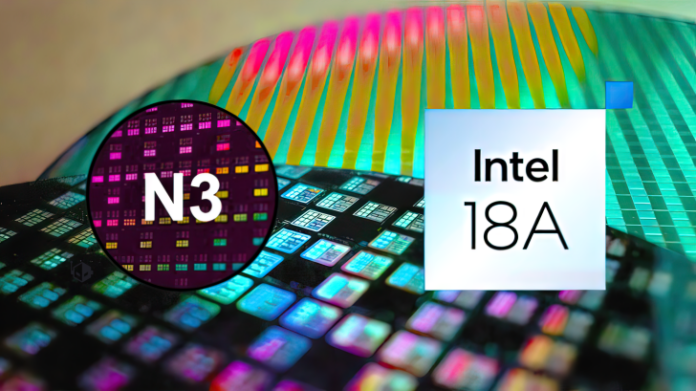
TSMC doesn't believe that Intel Foundry will surpass them in the coming years since the company revealed that its 3nm process is on par with Intel's 18A node.
TSMC's 3nm Implementation Could Provide a Similar Performance Output As Intel's 18A
Now you might be wondering how is this possible, since most of us know that "process shrinking" comes with their respective performance gains, and in this case, Intel's 18A utilizes a smaller node compared to TSMC's 3nm. Well, we will talk about this later on, but for now, let's take a look at what TSMC's Chief Executive C.C. Wei had to say on the company Q3 2023 earnings call at Intel vs TSMC:
Actually, we do not underestimate any of our competitors or take them lightly. Having said that, our internal assessment shows that our N3P -- now, I'll repeat again, N3P technology, demonstrated comparable PPA to 18A, my competitors' technology, but with an earlier time to market, better technology maturity, and much better cost.
In fact, let me repeat again, our 2-nanometer technology without backside power is more advanced than both N3P and 18A, and while the semiconductor industry is most advanced technology when it is introduced in 2025.
The statement by the official suggests that the Taiwan giant in no way is bothered by the advancements being made by Intel Foundry. Moreover, TSMC holds complete confidence in its 3nm (N3P) process, despite the fact that it will utilize more traditional power delivery methods and transistor technologies. Now the big question is, how can TSMC make such a statement since Intel utilizes superior methods with its upcoming Intel 18A process? To sum it all up, I believe it comes down to the "maturity" of both foundries with their respective manufacturing processes.
Let's go through some of the advancements anticipated with Intel's 18A process, it will utilize RibbonFET transistors along with a new "PowerVia" delivery method, which is anticipated to bring significant power efficiency gains. It is disclosed that we could see a 10% gen-to-gen improvement with 18A, which is a high number considered in the fabrication industry. The utilization of the Intel 18A process in chip development could indeed bolster performance figures, putting potential clients like ARM in a competitive spot.

TSMC's statement depicts that the company is in a comfortable position, without being too worried about competition from the industry. This is solely because of the fact that TSMC has held the thrones in the semiconductor industry for a long time, and has managed to obtain orders from the biggest tech firms in the world consistently. Intel, on the other hand, is relatively newer in the industry, and it hopes to challenge TSMC's market share through processes such as the Intel 18A and 20A, which will debut much earlier than what TSMC plans with similar processes.
However, we shouldn't jump to a conclusion just yet, since the performance figures will become evident once the processes are actually implemented into mainstream industry products.
WccftechContinue reading/original-link]




